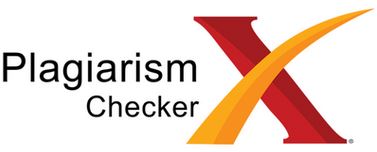Analisis Tingkat Kreativitas Wirausaha Mahasiswa Melalui Program Komunitas Entrepreneur
Abstract
Keywords
Full Text:
PDFReferences
Aisyah, E. N., & Solekah, N. A. (2018). Model Pembiayaan Mikro Pada Mahasiswa Berbasis Entrepreneurship. In Prosiding Seminar Nasional: Manajemen, Akuntansi, dan Perbankan, 1(1), 990-1002.
Al-Tabany, Trianto Ibnu Badar. (2014). Mendesain Model Pembelajaran Inovatif, Progresif, Dan Kontekstual: Konsep, Landasan, Implementasinya pada Kurikulum 2013(Kurikulum Tematik Integratif/KTI). Jakarta: Kencana.
Ananta, R. K. E., & Farid, M. (2014). Minat Wirausaha, Konsep Diri dan Kreativitas. Jurnal Psikologi Tabularasa, 9(1), 48-57.
Aqib, Z. (2013). Model-Model, Media dan Strategi Pembelajaran Kontekstual (Inovatif). Bandung: CV Yrama Widya.
Davis, G. A., (1991). Teaching Creativity Thinking In Handbook of Gifted Education, Boston, Allyn and Bacon.
Delobelle, V. (2008). Corporate Community Management. Diambil dari http://www.vaninadelobelle.com.
Fasco, Jr., D., (2001). Education and Creativity. Creativity Research Journal, 13( 3 & 4), 317 – 327.
Harianti, A., & Margaretha, Y. (2014). Pengembangan Kreativitas Mahasiswa dengan Menggunakan Metode Brainstorming dalam Mata Kuliah Kewirausahaan. Jurnal Manajemen Maranatha, 13(2), 175-192.
Hasanah, M., & Ratumbuysang, M. F. N. (2017). Strategi Peningkatan Minat Wirausaha Mahasiswa Melalui Program Kreativitas Mahasiswa–Kewirausahaan (PKM-K) di Program Studi Pendidikan Ekonomi FKIP Universitas Lambung Mangkurat. Jurnal Socius, 6(02), 294-313.
Johnson, E. B. (2007). Contextual teaching and learning: Menjadikan kegiatan belajar mengajar mengasyikkan dan bermakna. Bandung: Mizan Learning Center.
Kasali, Rhenald et al. (2010). Manual untuk Instruktur: Kewirausahaan untuk Program Srata 1. Yayasan Rumah Perubahan bekerjasama dengan Bank Mandiri, Indonesia.
Kertajaya, H. (2008). Arti komunitas. Jakarta: Gramedia Pustaka Utama.
Kurniati, E. D. (2015). Kewirausahaan industri. Deepublish.
Margaretha, Y; Harianti, A; Lisan, H. (2012). Analisis Perbedaan Tingkat Kreativitas Mahasiswa Sebelum dan Sesudah diberi Pengajaran Kewirausahaan. Fakultas Ekonomi Universitas Kristen aranatha, Bandung.
Pamilu, A. (2007). Mengembangkan kreativitas dan kecerdasan anak. Yogyakarta: Citra Media.
Riduwan dan Kuncoro A. E. (2008). Cara Menggunakan dan Memakai Analisis Jalur. Bandung: Alfabeta.
Sari, R. T., & Angreni, S. (2018). Penerapan Model Pembelajaran Project Based Learning (PjBL) Upaya Peningkatan Kreativitas Mahasiswa. Jurnal Varidika, 30(1), 79-83.
Setyawati, E. (2019). Analisis Kreativitas dan Produktivitas Mahasiswa pada Matakuliah Kewirausahaan (Studi Kasus Mahasiswa STKIP PGRI Pacitan). Jurnal Penelitian Pendidikan, 11(1), 1586-1594.
Situmorang, M., Simatupang, N., dan Silaban, R. (2013). Pengembangan Buku Ajar Kimia Inovatif Untuk SMA/MA Kelas X Semester II, Jurnal Pendidikan Kimia, 5(2), 129–131.
Suharta dan Luthan,P. L. A. (2013). Application Of Cooperative Problem-Based Learning Model To Developcreativity And Foster Democracy, And Improve Student Leaning Outcomes Inchemistry In High Scool. Journal Of Education And Practice, 4, 55-60.
Sumarno, S., Gimin, G., Haryana, G., & Saryono, S. (2018). Desain pendidikan kewirausahaan mahasiswa berbasis technopreneurship. Jurnal Ekonomi Pendidikan dan Kewirausahaan, 6(2), 171-186.
Suryana. (2011). Kewirausahaan Pendoman Praktis: Kiat dan Proses Menuju Sukses. Jakarta: Salemba Empat.
Susiana, N. (2005). Program Pembelajaran Kimia Untuk Menumbuhkan Sikap Wirausaha Siswa SMA. Jakarta: Universitas Pelita Harapan.
DOI: https://doi.org/10.18860/iq.v17i1.7949
Editorial Office:
Management Department,
Faculty of Economics,
State Islamic University of Maulana Malik Ibrahim
Gajayana Str. No. 50 Phone. 082334248882
E-mail: iqtishoduna@uin-malang.ac.id
E-ISSN 2614-3437
P-ISSN 1829-524X

IQTISHODUNA under CC BY SA 4.0 Internasional.
Indexed by:
Member of:










